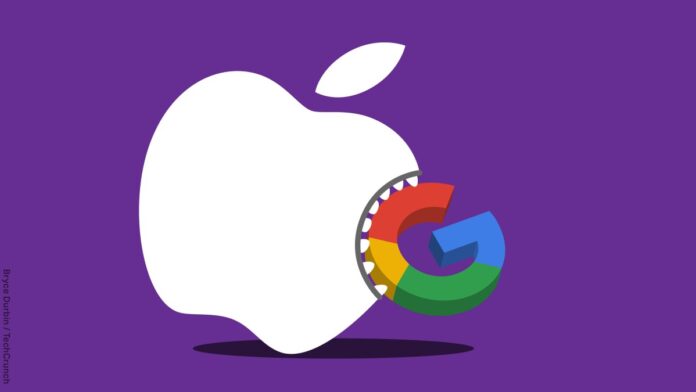Why the UK’s Decision to Designate Apple and Google as Strategic Market Players Matters
In a world where smartphones are as common as pocket money, two giants dominate the mobile landscape: Apple and Google. Recently, the U.K.’s Competition and Markets Authority (CMA) made a big decision that could shake things up. They’ve officially given these two companies something called "Strategic Market Status" (SMS). You might wonder, what does that mean for us, the users? Let’s dive into this decision and its implications.
Setting the Stage: What Is Strategic Market Status?
The CMA announced this SMS designation on a Wednesday that had tech enthusiasts buzzing. But what does this really mean? Essentially, SMS is a way for regulators to keep a closer eye on companies that hold significant influence in their market. In this case, Apple and Google have some serious power over mobile operating systems, app stores, browsers, and browser engines.
Back in January, the CMA kicked off investigations into these tech titans. By July, it seemed like SMS was a real possibility. They consulted over 150 stakeholders, talked to representatives from both companies, and did a lot of digging to figure out just how entrenched these companies are in our digital lives.
Why Do Apple and Google Matter So Much?
You might ask, “Why focus on Apple and Google?” Well, the CMA found that once users pick a mobile platform—like Apple’s iOS or Google’s Android—they tend to stick with it. This loyalty makes it tough for new competitors to break into the market. Both platforms are the main channels for businesses to reach out to consumers, which means they play a key role in shaping not just technology, but also how we experience the digital world.
A striking finding pointed out by the CMA was that new technologies, even something as exciting as artificial intelligence, won’t easily diminish the market power of Apple and Google over the next five years. Just let that sink in for a moment—our tech landscape will likely stay largely the same, dictated by these two giants.
The Bigger Picture: What Are the Implications?
So, what’s the potential fallout from this SMS designation? According to Will Hayter, who works for the CMA, this is not about accusing Apple and Google of any wrongdoing. Instead, it’s about ensuring there’s fair competition in the mobile marketplace. This means there could be new rules or changes aimed at making the platforms more accessible and innovative.
Imagine a scenario where smaller app developers can thrive instead of being overshadowed by the giants. More competition could lead to a wider variety of apps, better prices, and a fresher experience for all of us. That sounds pretty good, right?
But Wait, There’s More!
Apple and Google aren’t just sitting back while this unfolds. They’ve responded by raising concerns about how this might affect you, the user. Apple warned that these regulations could lead to delayed updates and fewer features for users in the U.K. They claim that the experience of using their devices could become fragmented, which might not sound great for anyone who values a smooth user experience.
Google chimed in, expressing confusion over the rationale behind the decision. They argue that they’re already facing tough competition and don’t see a need for new regulations. This back-and-forth has turned the spotlight back on what we expect from our mobile experiences.
My Personal Take: Why This Matters
As someone who relies heavily on technology in everyday life, this decision feels significant. It raises questions about how much power we want these companies to have and what it could mean for innovation, choice, and our day-to-day experiences.
It’s also a reminder that, as users, we need to be more aware of the digital environment we inhabit. The decisions made by these big companies can profoundly shape how we interact with technology. It’s not just about having the latest app or gadget; it’s about ensuring that we have choices and opportunities to contribute to that ever-evolving digital landscape.
Imagine a world where app developers, both big and small, can navigate the market freely without excessive barriers. What if innovation became not just a buzzword but a reality? The CMA’s SMS designation hints at the possibility of that world.
Looking Ahead: What Can We Expect?
As we look forward, the U.K.’s CMA will likely conduct further investigations and consultations to figure out the next steps. It may be a bumpy road ahead, with Apple and Google pushing back against any changes that might disrupt their status quo.
However, this is also a great time for smaller players to shine. If the regulatory landscape shifts in favor of competition and innovation, we, as users, could see some exciting developments in tech. New apps that simplify our lives, alternative services that prioritize our privacy, and tools that empower us to make better choices could all emerge.
Final Thoughts: The Power of Choice
Ultimately, the designation of SMS to Apple and Google forces us to reflect on the balance of power in technology. Are we okay with having our digital lives dominated by a couple of companies? Or do we value having a marketplace filled with options, where competition fuels better products and services?
As users, we have a role to play in this story. Keeping informed, advocating for our rights, and supporting smaller developers can help shape the future of our digital ecosystem for the better. The next few years will be crucial, and we should definitely keep our eyes peeled.
In the end, the U.K.’s decision could set a precedent for other countries, making this an issue worth following closely. The choices we make today can influence the tech landscape for generations. So, let’s stride forward into this future with optimism and a sense of responsibility—after all, it’s our digital world, too!

